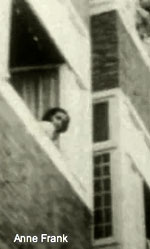BROWSE BY CATEGORY
- Archives and Libraries
- Blogs and Networking
- Bookmark This
- Digital Tools
- Examples of Teaching
- Exhibits
- Film Reviews
- History and Headlines
- Historic Sites and Museums
- Historical Thinking
- Holidays and Heritage
- Issues and Research
- Lesson Plans
- Material and Visual Culture
- Multimedia
- Organizations and Agencies
- Primary Sources
- Professional Development
- Publications
- Student Activities
- Teaching Materials
- Websites
Bookmark This! Virtual Fieldtrips

Field trips to museums and historic sites are great ways to generate enthusiasm and understanding about history. But budget cuts, logistics, and learning objectives on overload often bump class field trips to the bottom of the priority list.
Virtual field trips are alternatives. A great many historians, educators, and historic sites bill the resources they offer online as virtual field trips, but here we're defining them as tools that offer some degree of interactivity and three-dimensionalism—online experiences beyond the text-and-image format.
Colonial Williamsburg is a standard-bearer. Electronic Field Trips are real-time interactive televised events that provide the opportunity to see the museum and to talk to museum educators, and to look at primary sources. Resources are still available online if you miss the real-time event and include the video program, questions and answers, and background materials. Museum educators invite you to Explore the Field Trip series and find out how to sign up.
Monticello, home of Thomas Jefferson in Charlottesville, VA, is an expert at the virtual field trip and invites you to explore the plantation and the house, and to tour various parts of the historic site via Flash presentations—sometimes with narration, sometimes through animation—always with accompanying text and and drawing relationships among related historical resources.
On YouTube, The Official Anne Frank Channel shows the only extant film of Anne Frank (20 seconds), and a wealth of material about her. The virtual tour of the Anne Frank House is a work-in-progress, and a video demonstrates the development process. A wealth of film clips from inside the house, of interviews with her father, with the museum director, historians, and human rights activists explain why it is important to remember Anne Frank. "She taught us about the invincibility of the human spirit," Nelson Mandela explains.
Plan ahead for Thanksgiving! You are the Historian: Plimouth Plantation's Online Investigation of the 1621 harvest celebration (popularly known today as the First Thanksgiving—as you learn when you Visit the Expert) is so popular that it comes with directions for downloading to your computer to avoid high-volume traffic during the holiday season. This interactive flash exploration enables visitors to view the harvest celebration through the eyes of Wampanoag and pilgrim children.
The Teacher's Guide helps you show your students how to "use the skills of historians to peel away the layers of myth and misconception surrounding 'The First Thanksgiving'." Plimouth Plantation is also helping make up funding shortfalls that cut field trips through Foundations for Kids Program Guides which perhaps offer useful examples for other museums, historic sites, and educators. They offer classroom visits from museum educators and multicultural learning materials stressing connections between Wampanoag and Colonial cultures.
Meet Me at the Corner doesn't quite meet the criteria we set forth earlier for virtual field trips; however, it offers unique perspectives on history and historic sites. The three- to four-minute videos posted on this site are created by children, for children and content demonstrates critical thinking processes and learning objectives. The site self-designates for home-schoolers; however, the material is by no means limited to a single audience.
Search for topic under categories. History, for example, yields dozens of examples. The four-minute The Hudson River and Henry Hudson's Voyage surveys the landscape, talks to a kid-friendly historian, and explores historic artifacts, instruments, and music, and introduces key historical figures. Videos offer links to video book reviews and video podcasting lessons—all created and narrated by students. Visitors are encouraged to develop and upload their own videos. Participation is free.